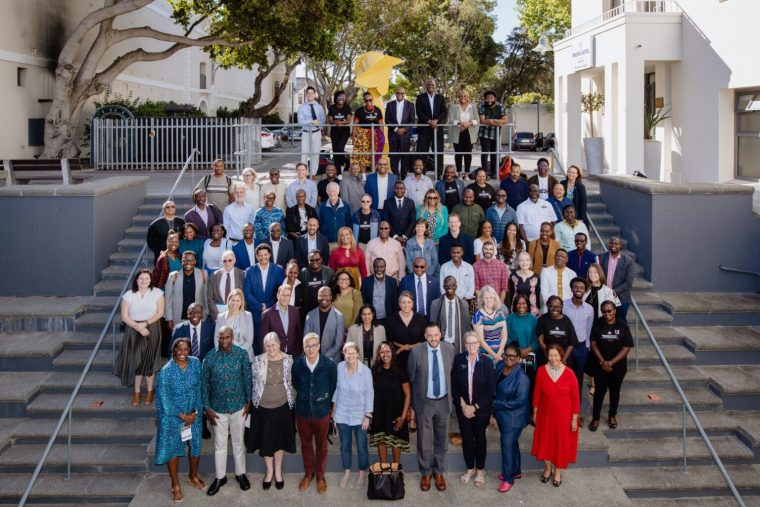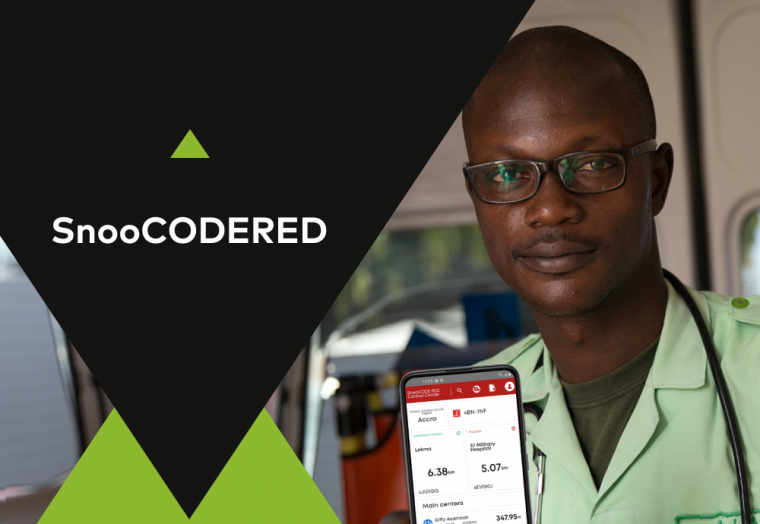Founder: Sesinam Dagadu
The Africa Higher Education Health Collaborative, in partnership with the Mastercard Foundation, will be welcoming the Health Entrepreneurship (HENT) African Impact Challenge’s second cohort for their upcoming visit to Toronto, where they will continue their implementation phase through activities targeting business development, expanding entrepreneurial networks, and facilitating exposure to potential investors.
The University of Toronto’s Health Collaborative Internal Communications Working Group caught up with the ventures to learn more about the origins of their companies, what they’ve learned to date, and what is coming up next…
SnooCODERED
As a young intern at a bank in Accra, Ghana, Sesinam Dagadu was confronted with the lack of a formal addressing system which made it difficult for clients with low literacy levels to set up bank accounts thus leaving them with the option to hand-draw detailed maps of their homes. Challenged by this, Dagadu created SnooCODE, a digital addressing system, which has obtained Prior Art as the first ‘postal code system and method’ for smartphones.
In the wake of the 2014 Ebola outbreak, the World Health Organization’s (WHO) African Network for Drugs and Diagnostics Innovation (ANDI) described SnooCODE as “a key technology in providing timely emergency care across Africa”. This inspired Dagadu to launch SnooCODERED, a product line specifically for healthcare.
SnooCODERED aims to solve the problem of inadequate healthcare infrastructure (systems, facilities and human resources) in Africa. It is doing this by providing a suite of cost-effective mobile healthcare logistics applications that democratize access to the ambulance or first aid response, facilitate the delivery of medical supplies to diverse populations, and improve contact tracing and epidemiological modelling. SnooCODERED provides an offline mobile emergency control centre that enables first responders to determine, notify, and confirm the closest available, most appropriate health assets (ambulance stations, hospitals, pharmacies and individual doctors) to an emergency, and navigate to and from the scene. The system includes a drone control module that allows anybody to deliver medical supplies to remote areas without knowing how to fly a drone – this is possible by entering the simple 6-digit SnooCODE address for the drone’s destination.
The SnooCODERED team is integrating artificial intelligence (AI) with the mobile control centre to give context-appropriate first aid instructions and primary health advice.
What is the accomplishment to date that your team is most proud of?
“The SnooCODERED team is integrating artificial intelligence (AI) with the mobile control centre to give context-appropriate first aid instructions and primary health advice.”
If you could give advice to another founder getting started, what would that be?
“ Be patient.”
Looking ahead, SnooCODERED is evolving from a tablet/smartphone emergency control centre into a modular solution that can be assembled and used in four different applications: stationary emergency call centres, mobile EMTs (in ambulance vehicles), stationary primary e-healthcare outposts, and mobile clinics. Each application has three main components in common: satellite internet, a mobile power source, and a tablet, with the SnooCODERED Control Centre (SRCC) now integrated with AI for quick decision support and triaging. SnooCODERED is currently working on the AI integration, after which it will complete its modular solution and go to market.

You can learn more about SnooCODERED
More News & Events
Skip scroller content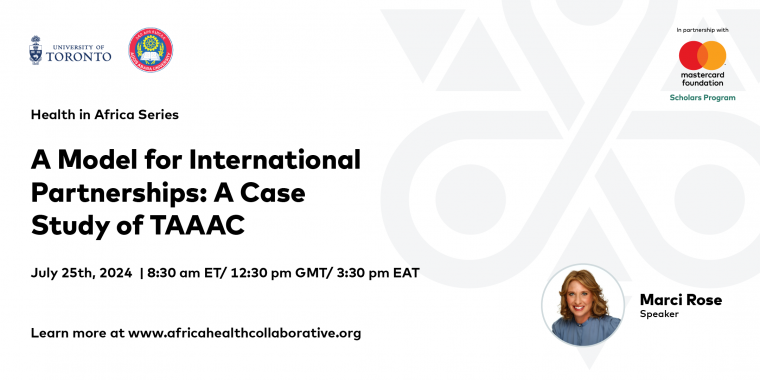
A Model for International Partnerships: A Case Study of TAAAC
The University of Toronto and Addis Ababa University are pleased to invite you to the next episode of the Health in Africa series discussing A Model for International Partnerships.
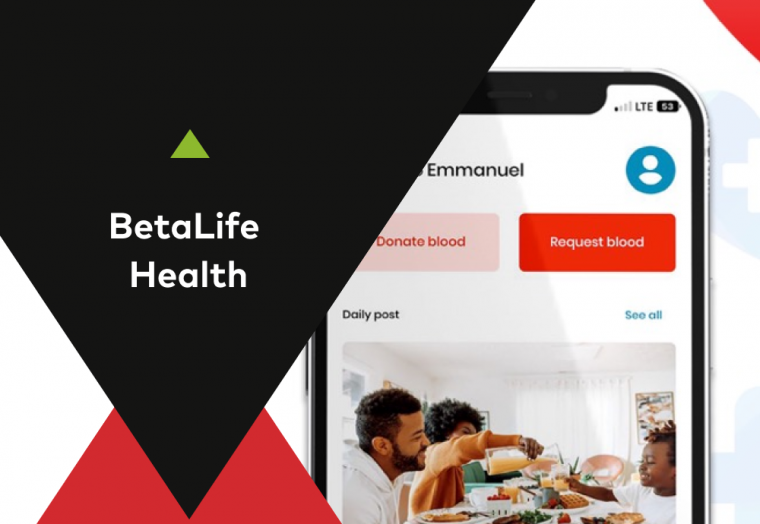
Venture Spotlight: BetaLife Health
BetaLife Health uses artificial intelligence (AI) to revolutionize blood supply management across Africa. Their platform uses predictive analytics to optimize blood inventory levels, distribution logistics and donor engagement, thereby improving the timeliness and availability of blood for transfusions.
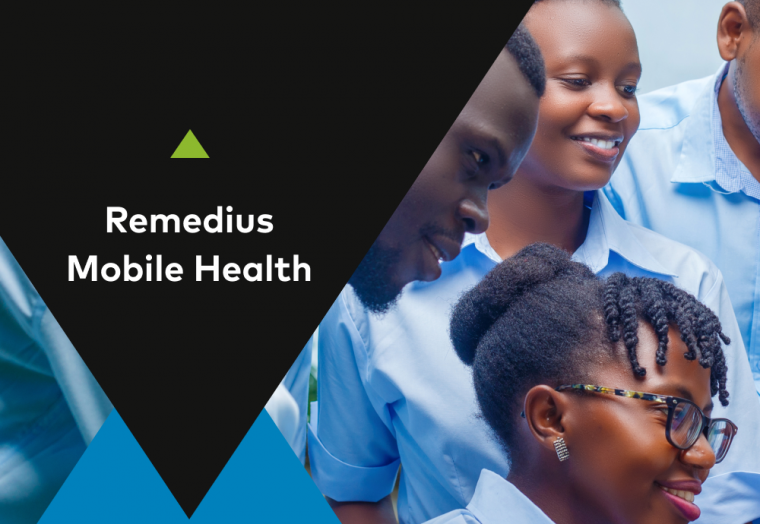
Venture Spotlight: Remedius Mobile Health
Remedius Mobile Health aims to combat the identified problems by leveraging telemedicine through the Remedius Live platform. They seek to provide fast virtual appointment scheduling with doctors and specialists at affordable rates of about five dollars and provide comprehensive care to chronically ill patients. This is executed through an integral network of facilities that provide physical care to these patients if need arises.

Venture Spotlight: Powerstove Energy
Powerstove designs and manufactures smart smoke-free cookstoves that also self-generate electricity for users to charge their mobile phones and power home appliances using proprietary renewable bio-pellets as fuel. These sustainable, mosquito repellent bio-pellets are produced from post-harvest crops and wood waste.
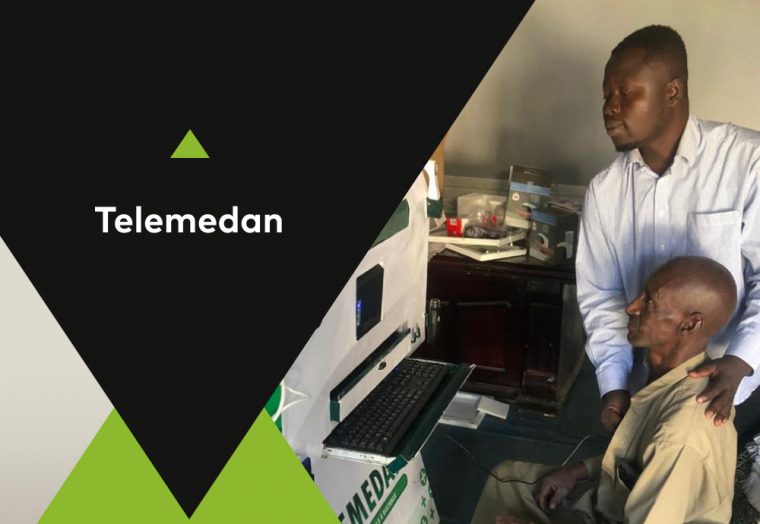
Venture Spotlight: Telemedan
Telemedan creates telemedicine kiosks in underserved communities in order to move toward closing the healthcare accessibility gap. Their kiosks facilitate video conferences between patient and doctor. They are equipped with medical devices for taking vital signs, such as ECG analysis, temperature measurement and blood oxygen saturation. Further, they feature stethoscopes, dermascopes, an HD camera and a scanner for the easy sharing of documents and lab results. With a focus on ease-of-access, Telemedan’s kiosks are user-friendly and accessible to those of varying levels of technology literacy.
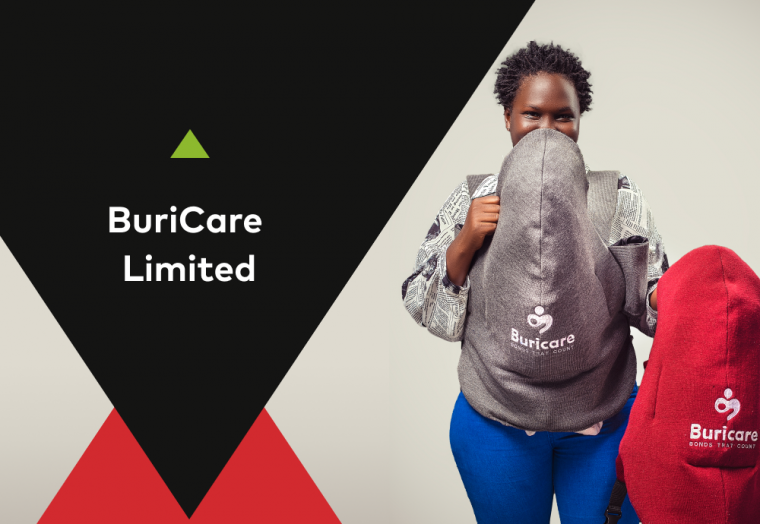
Venture Spotlight: BuriCare Limited
BuriCare Limited has launched their Kangacare baby carriers, designed to address the critical need for newborn care, especially in regions lacking adequate neonatal facilities. With only four Neonatal Intensive Care Units available in their country, Kangaroo Mother Care emerged as a cost-effective solution, promoting vital skin-to-skin contact between mother and newborn to regulate body temperature. These locally knitted carriers are equipped with essential sensors capable of monitoring the baby’s temperature, pulse rate, and oxygen saturation. In the event of any abnormalities, an alarm alerts the mother to seek immediate assistance.
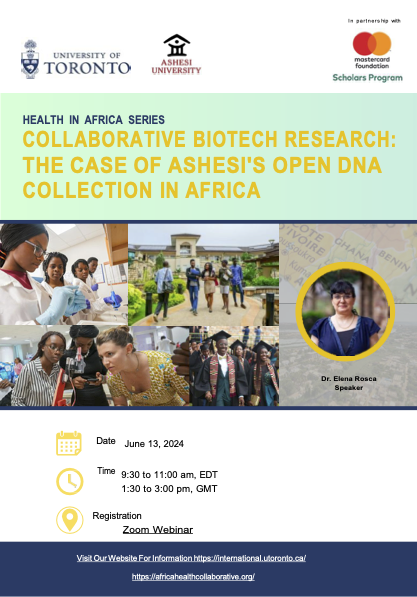
Collaborative Biotech Research: The Case of Ashesi’s Open DNA Collection in Africa
The University of Toronto and Ashesi University are pleased to invite you to the next episode of the Health in Africa series discussing Collaborative Biotech Research: The Case of Ashesi’s Open DNA in Africa.
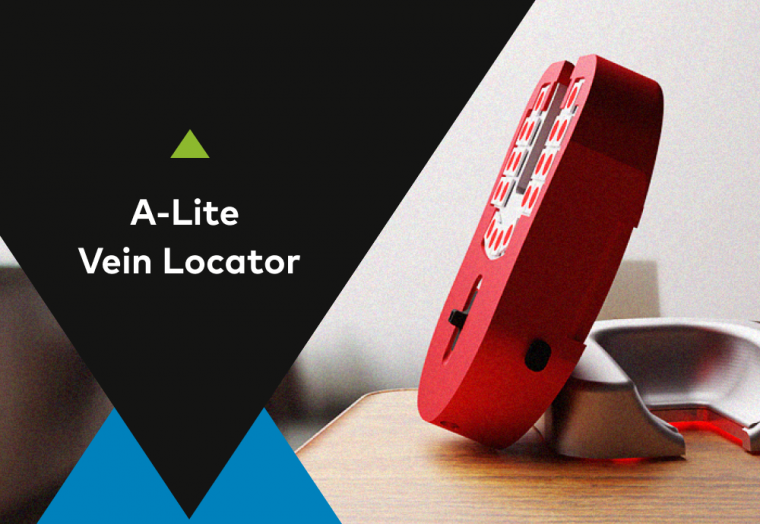
Venture Spotlight: A-Lite Vein Locator
The A-Lite Vein Locator is a medical device that facilitates the non-invasive detection of veins under the skin. Using the A-Lite Vein Locator shortens cannulation time by up to 88.5 seconds and lowers the risk of needle-stick injuries and infections. Further, the use of the A-Lite Vein Locator has been shown to decrease medical waste and unnecessary use of clinic resources.
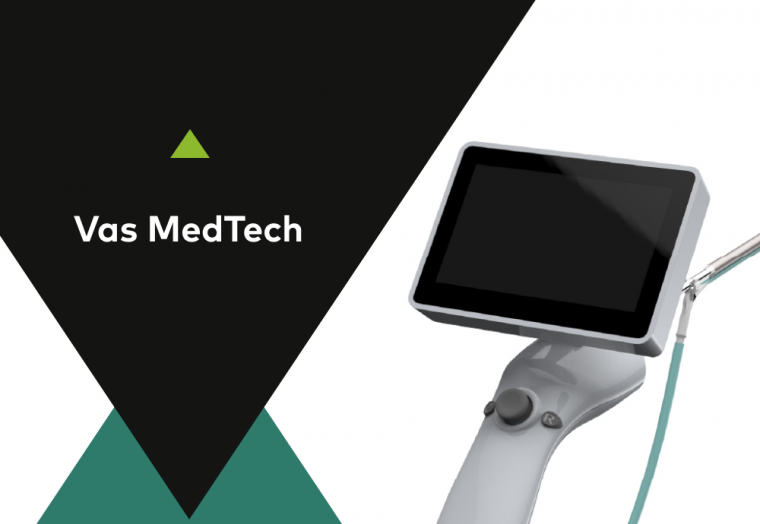
Venture Spotlight: Vas MedTech
Vas MedTech offers FlexiGyn, a portable, user-guided, and minimally invasive diagnostic camera that can operate in less specialized settings. This innovation is not only cost-effective, but also enhances accessibility. FlexiGyn enables community primary healthcare providers, such as nurses and general practitioners, to perform initial screenings and seamlessly consult with gynecologists for further diagnosis and referrals. FlexiGyn aims to make comprehensive women’s health care more accessible and convenient than ever before, thus addressing a global disparity in women’s health services.

Venture Spotlight: HealthEdu Ltd.
HealthEdu aims to confront the pressing need for a unified, easily accessible platform catering to the educational needs of healthcare professionals. HealthEdu creates a supportive community wherein practitioners, health organizations, and academic institutions converge to exchange insights, glean best practices, and collectively elevate standards of care.
